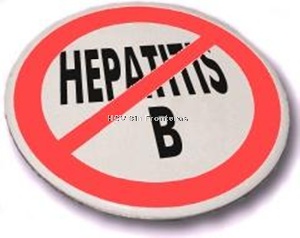The Eastern Region has experienced a concerning rise in hepatitis cases, resulting in 47 deaths over the past two and a half years.
This alarming statistic was highlighted by the Eastern Regional Health Director, Dr. Winfred Ofosu, who revealed that 5,348 cases of hepatitis were recorded during this period.
At a press conference held on July 26, 2024, to mark World Hepatitis Day in advance, Dr. Ofosu provided a detailed breakdown of the figures: “In the Eastern Region, a total of 2,091 cases with 16 deaths were recorded in 2022, and 2,257 cases with 17 deaths in 2023. By the end of June 2024, an additional 1,000 cases and 14 deaths had been reported.”
World Hepatitis Day 2024, under the theme “It is Time for Action Now,” aims to raise awareness about viral hepatitis, which can lead to severe liver disease and cancer.
Globally, an estimated 354 million people live with hepatitis B or C, with 2.2 million new infections each year resulting in 1.3 million deaths. Hepatitis B, particularly prevalent in sub-Saharan Africa and Ghana, affects 8 to 12 percent of Ghanaians.
Dr. Ofosu emphasized the critical need for early detection and treatment. “Hepatitis B, once contracted, can cause either an acute or chronic infection. For most adults, less than 10 percent will develop chronic infection. However, 90 percent of babies born to infected mothers who do not receive immunoglobulin with vaccination progress to lifelong infection,” he explained.
Hepatitis is primarily spread through bodily fluids, including blood, semen, and vaginal secretions. Common transmission methods include unprotected sexual contact, mother-to-child transmission during delivery, injecting drug use with shared equipment, and contaminated blood products.
In response to the hepatitis burden, the Eastern Region has launched several strategic initiatives, which include enhanced screening programs for residents in the region, including pregnant women, healthcare workers, and people living with HIV, who are encouraged to undergo screening.
“The general population can walk into any health facility or laboratory and request screening to know their status,” said Dr. Ofosu.
He said the Eastern Regional Hospital provides free medication for Hepatitis C following clinical assessment.
“Every Friday, a specialist attends to patients with various forms of hepatitis infections and their complications,” Dr. Ofosu noted.
On vaccination, Dr. Ofosu said Hepatitis B vaccines are available for all at-risk age groups, with efforts underway to introduce the vaccine at birth nationwide.
“Current immunizations for children cover Hepatitis B,” Dr. Ofosu added.
He noted that extensive campaigns aiming to educate communities on hepatitis prevention, vaccination, and the importance of regular health check-ups are underway.
“Knowledge is power. We are engaged in public awareness campaigns to educate our communities about hepatitis,” Dr. Ofosu stated.
Dr. Winfred Ofosu stated that hepatitis services are integrated into the primary healthcare system, making screening, vaccination, and treatment part of routine care.
Dr. William Arthur, a senior Physician Specialist (Gastroenterologist) and Head of the Department for International Medicine at Eastern Regional Hospital, said there is medicine to treat chronic infection of hepatitis B but it can’t be cured by either orthodox or herbal medicine.
Health News of Saturday, 27 July 2024
Source: starrfm.com.gh

















